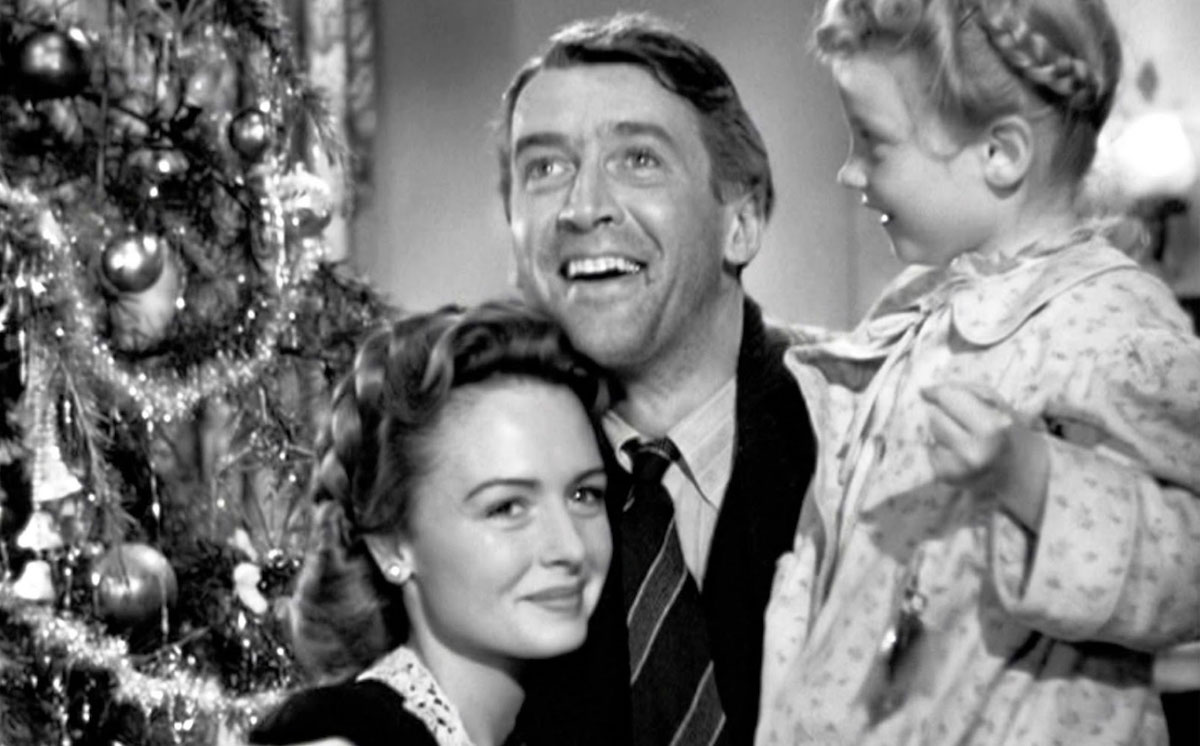One of the best parts of this time of the year is revisiting our favorite holiday movies. Many of us still annually watch the classics we saw as children well into adulthood. There’s something about a good Christmas tale that captures us, especially when it involves people helping other people. I mean, A Christmas Carol, a story about a rich man using his money to help others, had been remade countless times because we all love it. (Hands down, the Muppets version is the best.)
The message of spreading goodwill to others is one that echoes through many holiday movies. It’s a message that should stick with us throughout the year—and beyond. When I think back, my worldview was shaped in part by one of my favorite Christmas movies. I don’t know if I would be the Democratic Socialist I am today without the core beliefs I learned, in part, from George Bailey in It’s a Wonderful Life.
Take that, Mr. Potter!
It’s a Wonderful Life premiered in 1946, but didn’t become an American staple until it began showing on television every Christmas (because someone let the usage rights lapse). The film stars Jimmy Stewart as one of the most amazing fictional men ever written: George Bailey, an average guy just trying to do his best.
George Bailey runs the town’s Building and Loan while trying to thwart a greedy old rich man named Mr. Potter. When George feels like nothing in his life has amounted to anything, an angel named Clarence shows him just how much he has shaped his town and the people around him. George’s major accomplishment was helping people buy decent homes and escape Mr. Potter’s never-ending rent cycle. If George had never been born, the beloved picturesque town of Bedford Falls would be a slum entirely controlled by Mr. Potter.
Early in the movie, after the death of George’s father, Mr. Potter tries to buy the Bailey Bros. Building and Loan—the only business competing with him for the town’s housing. Although George wanted to do bigger and better things with his life, he knew he couldn’t let the (obviously evil) capitalist take control of his father’s business. In an impassioned speech to Mr. Potter and the Building and Loan board, George says exactly why they can’t sell to Potter:
“What’d you say just a minute ago? They had to wait and save their money before they even thought of a decent home. Wait? Wait for what?! Until their children grow up and leave them? Until they’re so old and broken down that—You know how long it takes a workin’ man to save five thousand dollars? Just remember this, Mr. Potter, that this rabble you’re talking about, they do most of the working and paying and living and dying in this community. Well, is it too much to have them work and pay and live and die in a couple of decent rooms and a bath? Anyway, my father didn’t think so. People were human beings to him, but to you, a warped, frustrated old man, they’re cattle. Well, in my book he died a much richer man than you’ll ever be.”
The Building and Loan board—and young, impressionable me—took George’s words to heart. Everyone deserves to have a decent place to call home and to have an accessible pathway to home ownership. One of the core beliefs of Democratic Socialism is what is called “Housing for All,” and sounds a lot like something George Bailey would get behind. It outlines how homeownership is one of the main ways working-class people can accrue wealth, yet so many are kept from ever buying a house because of predatory lending practices, unrealistic property values, and a lack of livable wage incomes. Housing for All also includes ending homelessness, since having a decent place to live should be a basic human right.
No, “liberal Hollywood” didn’t actually brainwash me into becoming a Democratic Socialist—I’m pretty sure growing up low-income and having parents who were never able to overcome the real world Mr. Potters cemented my stance on economics. But it is worth noting how much some of our most beloved movies align more with a Democratic Socialist message than with anything capitalism represents. Think about it: Scrooge didn’t find happiness until he shared his wealth with a previously underpaid employee. Even the Grinch only liked Christmas after doing away with the materialistic aspect of the holiday. For me, George Bailey stands above the rest. George wasn’t able to pull the moon down from the sky for his wife, but he did something much more meaningful for the people of Bedford Falls—he helped them have a home.
(featured image: RKO Radio Pictures)









Published: Dec 20, 2022 04:45 am